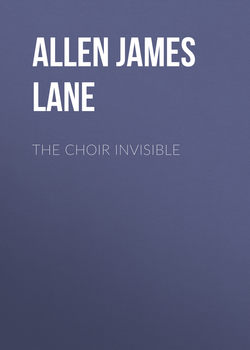Читать книгу The Choir Invisible - Allen James Lane - Страница 7
VII
ОглавлениеHE was kept waiting for some time. More than once he heard in the next room the sounds of smothered laughter and two voices, pitched in a confidential tone: the one with persistent appeal, the other with persistent refusal. At last there reached him the laughter of a merry agreement, and Amy entered the room, holding Kitty Poythress by the hand.
She had been looking all day for her lost bundle. Now she was tired; worried over the loss of her things which had been bought by her aunt at great cost and self-sacrifice; and disappointed that she should not be able to go to the ball on Thursday evening. It was to be the most brilliant assemblage of the aristocratic families of the town that had ever been known in the wilderness and the first endeavour to transplant beyond the mountains the old social elegance of Williamsburg, Annapolis, and Richmond. Not to be seen in the dress that Mrs. Falconer, dreaming of her own past, had deftly made—not to have her beauty reign absolute in that scene of lights and dance and music—it was the long, slow crucifixion of all the impulses of her gaiety and youth.
She did not wish to see any one to-night, least of all John Gray with whom she had had an engagement to go. No doubt he had come to ask why she had broken it in the note which she had sent him that morning. She had not given him any reason in the note; she did not intend to give him the reason now. He would merely look at her in his grave, reproachful, exasperating way and ask what was the difference: could she not wear some other dress? or what great difference did it make whether she went at all? He was always ready to take this manner of patient forbearance toward her, as though she were one of his school children. To-night she was in no mood to have her troubles treated as trifles or herself soothed like an infant that was crying to be rocked.
She walked slowly into the room, dragging Kitty behind her. She let him press the tips of her unbending fingers, pouted, smiled faintly, dropped upon a divan by Kitty's side, strengthened her hold on Kitty's hand, and fixed her eyes on Kitty's hair. "Aren't you tired?" she said, giving it an absorbed caressing stroke, with a low laugh. "I am." "I am going to look again to-morrow, Kitty," she continued, brightening up with a decisive air, "and the next day and the next." She kept her face turned aside from John and did not include him in the conversation. Women who imagine themselves far finer ladies than this child was treat a man in this way—rarely—very rarely—say, once in the same man's lifetime.
"We are both so tired," she drowsily remarked at length, turning to John after some further parley which he did not understand and tapping her mouth prettily with the palm of her hand to fight away a yawn. "You know we've been riding all day. And William Penn is at death's door with hunger. Poor William Penn! I'm afraid he'll suffer to-night at the tavern stable. They never take care of him and feed him as I do at home. He is so unhappy when be is hungry; and when he is unhappy, I am. And he has to be rubbed down so beautifully, or he doesn't shine." The tallow candles, which had been lighted when he came, needed snuffing by this time. The light was so dim that she could not see his face—blanched with bewilderment and pain and anger. What she did see as she looked across the room at him was his large black figure in an absent-minded awkward posture and his big head held very straight and high as though it were momentarily getting higher. He had remained simply silent. His silence irritated her; and she knew she was treating him badly and that irritated her with him all the more. She sent one of her light arrows at him barbed with further mischief.
"I wish, as you go back, you would stop at the stable and see whether they have mistreated him in any way. He takes things so hard when they don't go to suit him," and she turned to Kitty and laughed significantly.
Then she heard him clear his throat, and in a voice shaking with passion, he said:
"Give your orders to a servant." A moment of awkward silence followed. She did not recognize that voice as his or such rude, unreasonable words. "I suppose you want to know why I broke my engagement with you," she said, turning toward him aggrievedly and as though the subject could no longer be waived. "But I don't think you ought to ask for the reason. You ought to accept it without knowing it." "I do accept it. I had never meant to ask."
